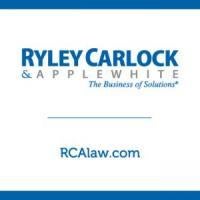The following information accompanies a presentation Mike gave to members of the Arizona Commercial Mortgage Lenders Association (ACMLA) on April 9, 2019.
Arizona Case Law – Statute of Limitations/Settlement Agreement
Harle v. Williams (AZ Court of Appeals 3-14-2019)
Harle and Williams were partners in a real estate venture. Harle sued Williams and others in 2010 for a breach of their partnership agreement. Harle and Williams agreed to a settlement in May 2011 requiring Williams to pay $50,000 in $500 monthly installments and to waive his interest in certain real estate. The settlement agreement permitted Harle to enter a $150,000 stipulated judgment against Williams, but included a covenant not to record or execute on the judgment as long as Williams timely made his monthly installment payments. The court entered the stipulated judgment in May 2011. Williams defaulted under the settlement agreement in November 2014. In March 2016, Harle recorded the judgment and sought to garnish certain property of Williams.
Sometime in or after June 2017, Williams contended that Harle’s judgment had expired because Harle had not timely renewed it. (At that time, Arizona law allowed a party five years from the date a judgment was entered to enforce it unless the party renewed it within the five-year period, which would extend the enforcement period another five years [the five-year periods referenced in this sentence were recently changed to ten years].) The trial court determined that the judgment remained enforceable because the period of enforceability was tolled while Harle was legally barred from enforcing the judgment, and determined that the judgment would remain in full force and effect until November 2019 (the five-year anniversary of Williams’ breach).
The Court of Appeals held that the statutory enforcement period does not begin to run against a judgment if it is not “suable,” and that the judgment was not suable until Williams breached the settlement agreement in November 2014 (as Harle was contractually prohibited from executing on the judgment until that time). Therefore, the enforcement period was tolled until November 2014 and Harle had no need to renew the judgment before beginning collection proceedings in 2016.
Lender takeaway. If a lender enters a settlement agreement that includes a covenant not to record or execute on the judgment until a breach occurs, consider including an express acknowledgment that the statute of limitations will be tolled until the judgment debtor defaults under the settlement agreement and the lender declares that default to exist in writing.
Read 2018 Arizona Legislative Updates Affecting Commercial Real Estate and Lending (June 2018)




 />i
/>i

